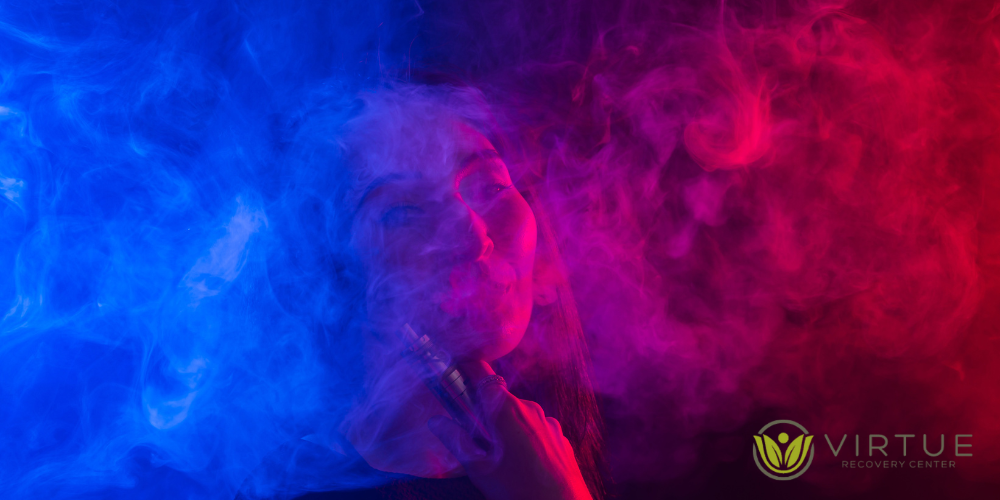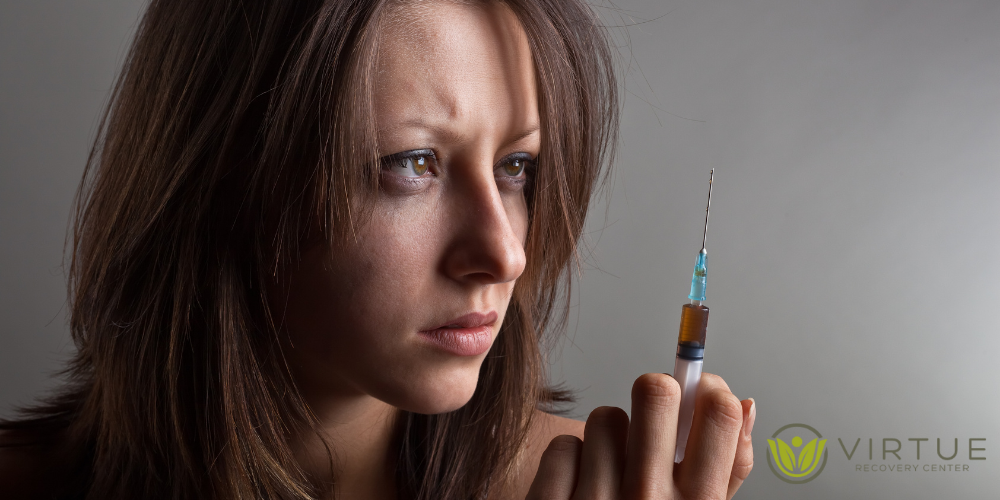Key Takeaways
- Teenagers who are addicted to vaping and prescription drugs are at greater risk for health and mental health problems.
- Youth drug addiction treatment programs include detox, therapy, and help with behavior.
- Interventions based on evidence, such as relapse prevention treatment and music therapy programs, lead to better results.
- Holistic drug abuse treatment helps teens get better in all three areas: physically, emotionally, and socially.
- Before long-term damage happens, early intervention can undo the harmful effects of vaping and pill misuse.
Introduction
Teenagers’ rising addiction to vaping devices and prescription drugs is changing the way teens abuse drugs. What started as trying something new has quickly turned into full-blown addiction for a lot of people. Drug addiction treatment centers are getting better at dealing with this problem by using targeted, age-appropriate interventions. These programs deal with the physical dependence as well as the mental, emotional, and social factors that lead to this dangerous trend.
Why Are Teens Turning to Vaping and Pills?
Teenagers like vaping because it’s easy to get, it’s accepted by their peers, and it tastes good. At the same time, prescription drugs that are often taken from family members promise a quick way to get away from anxiety, school stress, or peer pressure. Sadly, both habits can make you addicted quickly, especially when drugs like nicotine or opioids change the way your brain works as it grows (National Institute on Drug Abuse).
At first, a teen might vape just to “fit in,” but they can quickly become dependent on it and need help from a doctor. Also, abusing Adderall, Xanax, or Percocet regularly can lead to dangerous cycles of pill-seeking behavior that require meth addiction rehab or psychiatric help in the future.
What Are The Risks Of Using E-Cigarettes And Prescription Drugs?

It might seem like vaping is less harmful than smoking, but it is hazardous. The CDC says that vaping can hurt lung tissue, speed up the heart rate, and give teens a lot of addictive nicotine. Long-term use may also cause irreversible respiratory issues.
When teens vape e-cigarettes, they can experience:
- Reduced lung capacity
- More anxiety and irritability
- Imbalanced hormones
- The immune response is weaker
Taking prescription drugs, especially opioids or stimulants, can cause seizures, paranoia, and long-term memory loss. If teens are using both at the same time, recovery is harder, which is why treatment plans that use more than one method are so important.
What Difference Does Early Drug Addiction Treatment Make?
Time is important to teens who are trying to get over their addiction. A structured drug addiction treatment program that starts early can stop teens from becoming dependent for life, lower their medical risks, and help them get back into school and social situations.
Specialized centers for teen addiction usually start with:
- A medical detox phase (if necessary)
- Full psychological evaluation
- Sessions of family therapy
- Therapy sessions for individuals and groups
These programs are meant to be both clinical and supportive. They help teens feel better about themselves and get their emotions back on track.
How Can Holistic Treatment Help Teenagers Improve?
These days, rehab centers focus on treating substance abuse holistically because they know that addiction is more than just a chemical problem; it’s also an emotional, social, and behavioral one. Therapies that deal with the mind-body connection are beneficial for teens. Some examples are:
- Meditation and yoga
- Art and writing in a journal
- Counseling on nutrition
- Programs for getting fit
This type of treatment setting enables individuals to express themselves and manage their emotions, making recovery more personalized and lasting.
What Part Does Music Therapy Play In Helping Teens Get Over Their Addictions?
Many teen programs now incorporate music therapy, and there’s a good reason for that. Music can help you feel better, improve your memory, and make you feel safer. It can help people heal from trauma and deal with their feelings through writing songs, playing instruments, or listening to music with others.
Music therapy helps teens who are recovering from addiction express their problems in nonverbal ways, which makes them more involved in treatment and aware of their feelings.
How Do Treatment Centers Keep Teens From Relapsing?

Young people are particularly concerned about relapse. That’s why every effective teen program must include relapse prevention treatment. These services give teens long-term plans, such as:
- Finding out what sets you off
- Ways to deal with stress, like deep breathing or writing in a journal
- Acting out situations where peer pressure is strong
- Setting and reaching realistic recovery goals
Programs also show family members how to help the teen make progress, which lowers the risk of enabling or isolating them, which can lead to relapse.
What If The Addiction Has Gotten Worse And Now Involves Harder Drugs?
Sometimes people who start by vaping or taking pills end up using more potent drugs like meth. In these situations, it is essential to go to a meth addiction rehab program. These special tracks are:
- Clinical monitoring around the clock
- Support for people with more than one mental health condition
- Behavioral therapy with a lot of intensity
- Accountability among peers and support from the group
Centers that specialize in helping teens get off meth are better able to deal with aggression, paranoia, or self-harming behavior that often happens when someone is going through withdrawal.
Conclusion
Teenagers’ addiction to vaping and pills is not just a phase; it’s a public health issue with long-term effects. If you don’t address it, it can hinder your academic goals, social development, and even your physical well-being. But drug addiction treatment that is based on evidence and given at the right time can help people get better.
Don’t wait if your teen is showing signs of drug or alcohol dependence. Virtue Recovery Center, Killeen’s holistic substance abuse treatment approach, which includes relapse prevention treatment, music therapy programs, and specialized options like meth addiction rehab, can help them get back on track. Call us today at 866-843-0545 to start complete, caring care that puts your family first.
Frequently Asked Questions
1. Can teens get hooked on vaping as quickly as they can on other drugs?
Yes. Nicotine in e-cigarettes is very addictive, especially for teens whose brains are still growing.
2. What should I do first if I think my teen is abusing drugs?
Get a professional opinion. Many treatment centers offer private consultations and assistance with planning detox.
3. Does music therapy help people with addiction?
Yes. Research indicates that music therapy helps teens manage their emotions and reduces their stress levels during recovery.
4. Is it possible for my teen to fully recover from an addiction to meth or pills?
Teens can improve and return to an everyday life with early, consistent, and comprehensive care.
5. Are there programs that are made just for teens who are addicted?
Yes. A lot of drug rehab centers now have special programs for teens and young adults with therapies and staff that are right for their age.
How Can Understanding the HALT Triggers Help in Treating Teen Drug Addiction Involving Vaping and Pills?
Understanding the halt relapse triggers—Hunger, Anger, Loneliness, and Tiredness—can significantly aid in treating teen drug addiction involving vaping and pills. By addressing these emotional and physical states, caregivers can equip teens with coping strategies, reducing the likelihood of cravings and preventing relapse. Awareness fosters resilience in recovery.
Resources:
- Centers for Disease Control and Prevention.
“E-Cigarette Use Among Youth.” Centers for Disease Control and Prevention, 17 Oct. 2024, www.cdc.gov/tobacco/e-cigarettes/youth.html. - Centers for Disease Control and Prevention.
“Health Effects of E-Cigarettes.” Centers for Disease Control and Prevention, 2024, www.cdc.gov/tobacco/e-cigarettes/health-effects.html. - National Institute on Drug Abuse.
“Understanding Drug Use and Addiction DrugFacts.” National Institute on Drug Abuse, 6 June 2018, nida.nih.gov/publications/drugfacts/understanding-drug-use-addiction.
- About the Author
- Latest Posts
Gigi Price holds licenses as a Master Social Worker and Clinical Drug Counselor. She completed her master’s degree in Social Work at Texas State University. Over the last decade, Gigi has been dedicated to utilizing evidence-based practices to enhance patient care and treatment planning, resulting in positive, long-term outcomes for patients and their families. Her passion lies in creating a treatment environment where professionals collaborate to bring about positive change and provide a safe, trustworthy therapeutic experience. Patients can be confident in receiving top-quality care under her leadership.
In her role as the Clinical Director of Virtue Recovery Houston, Gigi conducted research to identify the most effective approaches for treating patients with acute mental health diagnoses, PTSD, and Substance Use Disorder. She then assembled a team of skilled clinicians who could offer various therapeutic modalities, such as Cognitive Behavioral Therapy (CBT), Dialectical Behavioral Therapy
(DBT), Acceptance and Commitment Therapy (ACT), Somatic Exposure, Eye Movement Desensitization and Reprocessing (EMDR), and Cognitive Processing Therapy (CPT). Gigi takes pride in overseeing the development and implementation of Virtue Houston’s Treatment Program, which includes two specialized therapeutic curricula tailored to the unique needs of individuals struggling with mental health issues, addiction, and PTSD.












